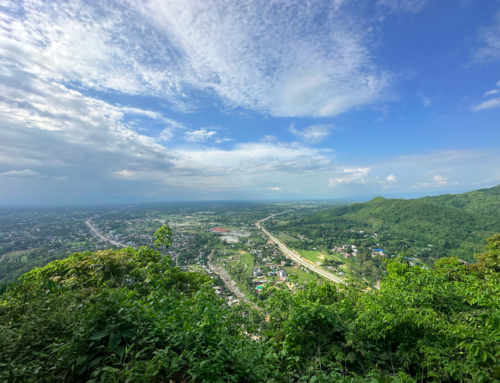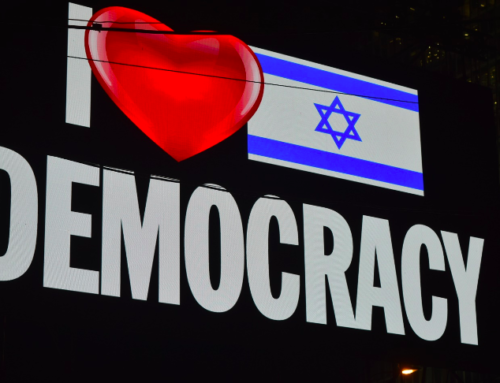Winter: time to get cozy, to curl up in front of a fire with a good book. From the land of academics dreaming, we bring you the second installment of our new feature. What are we reading over break? This time around, we polled three members of our graduate student editorial intern team and two faculty members of the AES Board. Some read in front of a fire, some read on airplanes, and some read out loud with other family members. Once again, their readings list span the electic to the academic with lots of fiction thrown in for good measure as well as a cookbook.
Thanks to Roberto Gonzalez, Naveeda Khan, Ognjen Kojanic, Celeste Pang, Victoria (Tori) Sheldon for sharing their reading. Here’s What We’re Reading:

What am I reading? It’s been quite a hodgepodge these past months, but it could be summed up as a lot of guides. When it comes to fiction I like to get stuck into one author, so the fall began a guide to Colombian writer Juan Gabriel Vásquez. Reputations, and The Sound of Things Falling (their English-language titles) are both obsessive, questing sorts of books which explore the political history of the country, while dealing with the vagaries of memory, marriage, and allegiances and coincidences of various kinds. They center a political cartoonist and a billiard-playing law professor as their protagonists, respectively. I began to read The Shape of Ruins (shortlisted for the 2019 Man Booker Prize), but couldn’t quite get into it, so might start re-reading the others in the original Spanish next. He’s a wonderfully poetic writer, and the translator, Anne McLean, is a star. Academically speaking, Leah Lakshmi Piepzna-Samarasinha’s Care Work: Dreaming Disability Justice and Dean Spade’s Normal Life: Administrative Violence, Critical Trans Politics, and the Limits of Law have been guiding lights near my desk recently, as has Upstream, a collection of essays by the great naturalist Mary Oliver. A few months ago I signed up for a triathlon, an impulsive decision that I’m now prepping for—of course—by reading another book, The Triathlete’s Training Bible, by Joe Friel, in its 4th edition. I just started Part III, on “Purposeful Training”, and I’m struck by all the ways that sports psychology (or a training plan, at that) might translate into the endurance sport of dissertating. It’s a snappy read, and I’d highly recommend it. Finally, I have been heavily involved with a Nordic bread book, Meyer’s Bakery, and it is by far the tastiest of the bunch.
 Naveeda Khan, Councilor
Naveeda Khan, Councilor
In preparation to travel to Madrid in early December to follow the global climate negotiations under the auspices of the United Nations, I was reminded of previous such trips and how drained I felt by them. I made a promise to keep a novel by my side when my mind sought a break from the alphabet soup that constituted climate policy (UNFCCC, COP, CMP, CMA, APA) and wanted to luxuriate in prose. I took with me Han Kang’s The Vegetarian, translated by Deborah Smith. I make a point to mention the translator because I remember reading in a New Yorker review of the book that the translation was so distinctive as to deserve recognition in its own right. The book had been recommended by my colleague Clara Han who has recently written a book on her childhood memories of the American war in Korea filtered through her immigrant parents. My sister, who had taken to reading copious fiction at the tail end of her marriage, had given me her copy of The Vegetarian saying that it had provoked strong feeling in her. So it was with some excitement that I began the book, quickly realized that I was repelled by it but couldn’t stop reading it. The slim novel recounts the transformation of a dowdy, self-effacing South Korean woman, Yeong-hye, from a passive wife to a fierce decliner of meat after a dream that she has. I am not sure I would call Yeong-hye a vegetarian as claimed in the title. For me being a vegetarian has gentler connotations of having made a life style choice, taken a political stance, or complied with religious prescription, whereas Yeong-hye’s refusal of first meat and later all food seems born not out of choice, but compelled by a psychic necessity to become vegetal, one of the trees amongst whom she seeks to be. Every day I read a few lines of the puzzlement, anger, desire and dismay directed at her by those around her as I stood in the underground train taking me to and from the COP25 conference venue. Every morning I encountered a group of vegans at the mouth of the station greeting disembarking conference attendees with images of human cruelty against animals, booklets on vegan diets and pamphlets seeking to dispel myths regarding veganism. I smiled politely, heard what they had to say, “look, if you embrace veganism you can change the world, you won’t need such large conferences to manufacture change,” took whatever they had to offer but cannot now recount what I did with it all. The young around me make the choice of vegetarianism, if not veganism, all the time. I would love to make the leap. I eat less and less meat all the time. But I cannot cut the tie to something that gives me such a feeling of pleasure and fullness, that recalls my childhood in Bangladesh, and that ties me to my parents who are unrepentant meat lovers. It’s not that I fear anything akin to Yeong-hye’s estrangement, but that I realize it may take a violent psychic shift, a being out of step with the world, to produce meaningful change. It is with some relief that I finished The Vegetarian, abandoned it at the hotel lobby, and turned to reading with relish Ursula Le Guin’s science fiction novel The Dispossessed that speaks of a community of anarchists who leave their Earth-like planet to create a new society on its moon. They are by necessity vegetarians. It is the air they breathe.
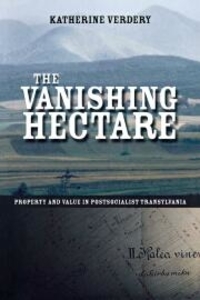
I traveled from Pittsburgh to Europe to be with family and friends for the holidays. In my case, that meant six flights, some of which were very long, and four layovers, all of which were long. A lot of that time went to reading, so I took several books with me. One of them was Katherine Verdery’s The Vanishing Hectare. I read it when I was preparing for my dissertation research, which revolves around the transformation of property rights after the fall of socialism. Now that I am in the writing phase, I am revisiting the ethnography with fresh eyes and insights from my fieldwork in mind. I also brought The Life of Cheese by Heather Paxson, which I taught in my Introduction to Cultural Anthropology last semester. I enjoyed the book a lot when I first read it and I’ve decided to teach it again next semester in my Anthropology of Food course, so I am rereading some parts with different questions in mind. I will also find time for at least one novel; I packed Nnedi Okorafor’s Lagoon. I recently finished reading her Binti trilogy, which, as most good Sci-Fi, explores very anthropological themes, such as violence, colonialism, human exceptionalism, and multispecies communication. While I’m on the topic of human exceptionalism and multispecies communication, let me also recommend The Overstory by Richard Powers. I read the novel a couple of months ago and cannot stop thinking about it. Both Okorafor and Powers ask us to consider how detrimental our relationships with others, humans and non-humans alike, can be in the Anthropocene/Capitalocene. We all need to think hard about the issues they center in their writing and make firm political commitments to collectively bring about change on a planetary scale.
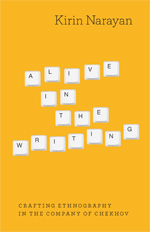
A few days before winter break, I set aside some books to help me thematically work through the next chapter of my dissertation. This included Kirin Narayan’s hands-on guide, Alive in the Writing: Crafting Ethnography in the Company of Chekov. The book provides freewriting exercises throughout, which I can attest help give clarity when navigating a sea of field notes. Over the break, I also re-read Masanobu Fukuoka’s book, The One-Straw Revolution: An Introduction to Natural Farming. Fukuoka was a Japanese farmer, poet and philosopher, known for creating “do-nothing” farming in response to deforestation and desertification. For many of the natural healers and farmers of Kerala, south India who I work with for my PhD, Fukuoka’s philosophy of nature is as important to their practice as is Gandhi’s writings on health and nonviolence. On the academic front, the winter break has been a good time to start a few ethnographies from the book sale at this year’s AAAs in Vancouver. First, I am two chapters into Sarah Pinto’s new book, The Doctor and Mrs. A.: Ethics and Counter-Ethics in an Indian Dream Analysis. The book begins in the 1940s just before Partition, narrating the experience of a young Punjabi women sitting down with psychiatrist Dev Satya Nand to undergo an experiment in dream analysis. Her conceptual offering of counter-ethics points to the fluidity of ethical life, and the imaginative ways that new ideas about what is good or right come into view. Second, I am working through Tulasi Srinivas’ ethnography, The Cow in the Elevator: An Anthropology of Wonder. Not only does she theorize how ritual may generate wonder in high-tech Bangalore, she also steps back, philosophically considering the human need for wonder. Both these ethnographies are creative, insightful, and attentive to time and process. To help with my new chapter, I have also returned to sections from the edited volume Ethical Life in South Asia, edited by Anand Pandian and Daud Ali—a book that played a central role in writing my PhD proposal. I definitely recommend this book for those interested in ethical life as lived, negotiated and embodied. Lastly, I recently began a copy of William James’ book Pragmatism in a “free book library” here in Toronto. Compared to other American philosophers, I have always found James’ writings to be refreshingly non-reductive and attentive to subjectivity. I think he would appreciate social-cultural anthropologists’ ongoing efforts to richly represent the complex ways that individual stories become entangled with social processes.
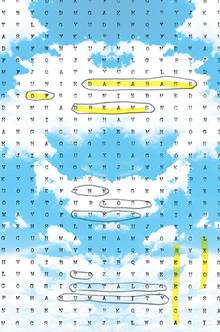 Roberto Gonzalez, Councilor
Roberto Gonzalez, Councilor
My winter reading lists changed dramatically a few years ago, after I became a father. Rainy days and long evenings mean extra indoor time with my two inquisitive preschoolers—and many cozy hours of family reading. At the moment, their favorite author-illustrator (and mine) is Duncan Tonatiuh. We checked out his brilliant book Dear Primo: A Letter to My Cousin from our public library a few weeks ago, and since then we have purchased several other titles, including Pancho Rabbit and the Coyote: A Migrant’s Tale and Diego Rivera: His World and Ours. Tonatiuh’s enchanting artistic style is primarily influenced by Mesoamerican iconography, namely Mixtec, Mayan, and Aztec codices and glyphs. His stories deal with difficult topics such as immigration, segregation, and discrimination in a way that is smart and sophisticated. Apart from piles of kids’ books, I have three “work” books on my winter list. The first is Sirpa Tenhunen’s A Village Goes Mobile: Telephony, Mediation, and Social Change in Rural India, which I am reading to inform my own work on Mexican community cell phone networks. It’s surprising that anthropologists have done so little work on mobile phones (other than industry research on users), and Tenhunen’s ethnography is among the few book-length monographs on the topic. I’ll also be reading Rebecca Lemov’s Database of Dreams: The Lost Quest to Catalog Humanity, which like all of her work is beautifully written and meticulously researched. It’s about a group of mid-century social scientists–including a few anthropologists—who tried assembling a massive trove of dreams, nightmares, hallucinations, and visions from non-literate peoples. Finally, I’ll be pulling the old holiday chestnuts out of the fire. In other words, it’s time to re-read my favorite little stocking-stuffer: What the Foucault? by Marshall Sahlins. It’s my annual inoculation against silly academic trends, pretentious writing, and the holiday blues. Heaven knows we could use a few laughs.
